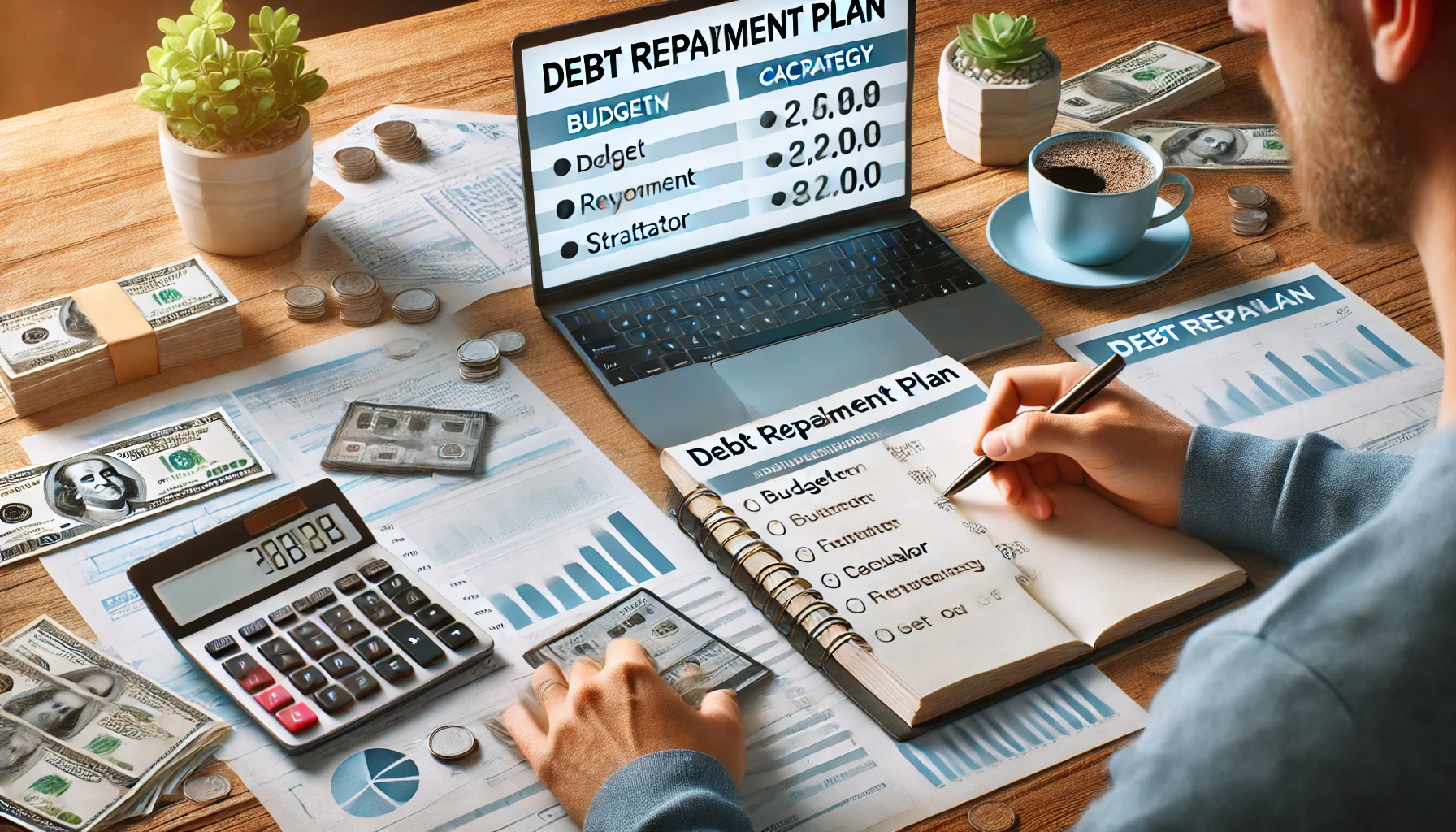Debt can feel overwhelming, especially when high-interest rates and monthly payments start to pile up. However, no matter how deep in debt you are, there’s always a way out. The key is to have a clear strategy, stay disciplined, and take consistent action.
In this guide, you’ll learn practical and efficient steps to get out of debt without feeling stressed or discouraged.
1. Understand Your Debt Situation
Before you can tackle your debt, you need to have a clear picture of how much you owe, to whom, and under what conditions.
How to Assess Your Debt:
List all your debts (credit cards, loans, medical bills, etc.).
Note the total balance, minimum payment, and interest rate for each one.
Identify the debts with the highest interest rates—these are the most expensive.
Knowing your exact debt situation will help you choose the best repayment strategy.
2. Stop Accumulating More Debt
To escape debt, you must stop making it worse. This means:
Avoid using credit cards for unnecessary purchases.
Don’t take out new loans unless absolutely necessary.
Reduce impulse spending and prioritize essentials.
If you’re struggling with credit card usage, consider switching to cash or a debit card to control your spending.
3. Choose a Debt Repayment Strategy
There are two popular methods to pay off debt effectively:
A. The Snowball Method (Motivation First)
- Pay off your smallest debt first while making minimum payments on the others.
- Once that debt is cleared, move to the next smallest.
- The small wins keep you motivated.
B. The Avalanche Method (Save on Interest)
- Pay off the highest-interest debt first while making minimum payments on the rest.
- Once that debt is gone, move to the next highest-interest one.
- This method saves you the most money in the long run.
Pick the method that works best for you—whether it’s quick wins for motivation or long-term savings on interest.
4. Reduce Expenses and Free Up Money for Debt Payments
To pay off debt faster, you need to increase the amount of money you put toward repayments. You can do this by cutting unnecessary expenses, such as:
Canceling unused subscriptions.
Cooking at home instead of eating out.
Reducing transportation costs (carpooling, public transit).
Avoiding impulse purchases.
Even small savings add up, and that extra money can go straight to your debt payments.
5. Increase Your Income to Pay Off Debt Faster
If cutting expenses isn’t enough, consider finding ways to earn extra money to pay off debt faster:
Ask for a raise at your current job.
Start a side hustle (freelancing, tutoring, online sales).
Sell items you no longer need.
Rent out a spare room or unused items (like a car or tools).
Every extra dollar you make can accelerate your debt-free journey.
6. Negotiate Better Terms for Your Debt
Many people don’t realize that debts can be negotiated. You might be able to:
Call your creditors to ask for lower interest rates.
Request a debt consolidation loan with a lower interest rate.
Ask for a new repayment plan that fits your budget.
Lenders prefer to get some payment rather than none, so it’s always worth negotiating.
7. Automate Your Payments to Stay Consistent
Missing payments leads to late fees and more interest, making your debt worse. To avoid this:
Set up automatic payments for at least the minimum amount.
Use reminders or budgeting apps to track due dates.
Pay more than the minimum whenever possible to clear debt faster.
Consistency is key when it comes to debt repayment.
8. Stay Motivated and Track Your Progress
Paying off debt takes time, so it’s important to celebrate small victories along the way. Try these methods:
Use a debt tracker to see your progress.
Set mini-goals (e.g., “Pay off $500 this month”).
Reward yourself (without spending money) when you clear a debt.
Staying motivated will help you avoid debt in the future and maintain financial discipline.

